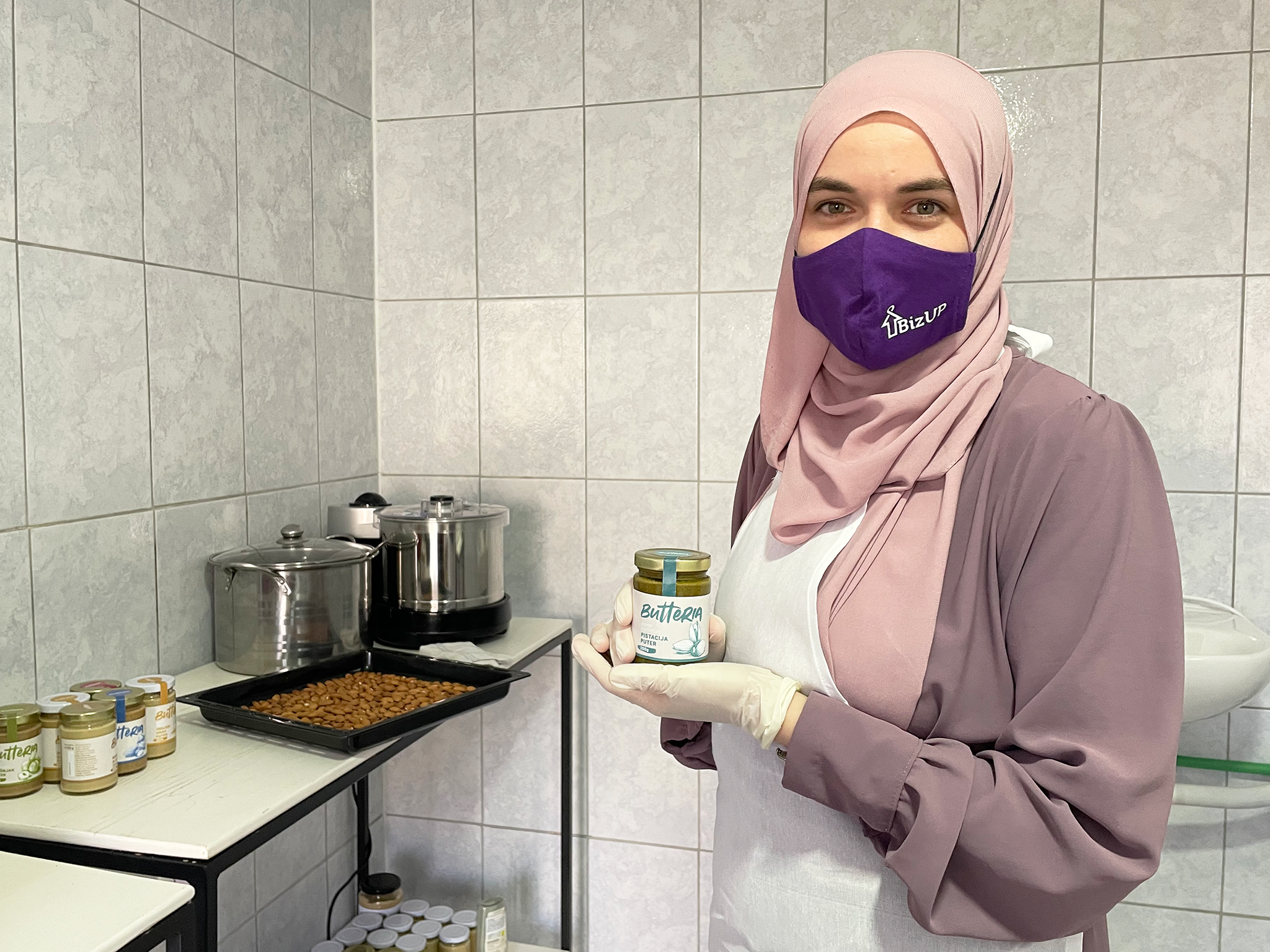
Women's Economic Empowerment

In this impact area UN Women utilizes a two-pronged approach of influencing the major players and implementing targeted interventions aimed at influencing policies, programmes and funds relevant for women’s economic empowerment. Income security, decent work and economic autonomy are shared competences and topics among six different ministries on three levels of government (only counting state and two entities).
Within the Women’s Economic Empowerment portfolio, UN Women in BiH works to improve policy framework for job creation, including perspectives of care economy and entrepreneurship, and the implementation of existing policies through policy coherence between programmes for gender equality and promotion of women’s access to decent work. Building on investments in support of gender-responsive policies and budgets, UN Women supports the development and resilience of women-owned businesses and women entrepreneurs and improves the socio-economic position of rural women and their cooperatives. UN Women also continuously seeks to ensure that ICT/STEM education and job opportunities are available and accessible to girls and women, by promoting the network of women in ICT, mentorship programs and using Women’s Empowerment Principles and other tools to improve gender equality in male-dominated industries.
Our Results
- Four comprehensive studies produced: “Study on Women’s Economic Empowerment in Bosnia and Herzegovina: Overview of key denominators, policy and programming options”, “Study on Resilience of Women-Owned Businesses to Crisis in Bosnia and Herzegovina: Key challenges, opportunities and programming options”, “Feasibility Study on women-owned businesses access to finance in Bosnia and Herzegovina” and ”Baseline Study on Care Economy in Bosnia and Herzegovina: Overview of key denominators, policy, and programming options”.
- In 2022, capacity building trainings were organized to raise the knowledge and improve the technical skills of 64 representatives from governmental institutions to diagnose, assess, and monitor the impact of economic growth, macroeconomic, and sector policies on women’s entrepreneurship and employment opportunities
- In 2020, technical and financial support was provided to 12 women entrepreneurs, whose businesses were negatively impacted by COVID-19. 75% of businesses increased sales and 83% increased revenue. All 12 businesses increased brand recognition over the set benchmark of 10%; increased social media following, ranging from 4 to 100%; and increased business performance by at least 50%. Entrepreneurs increased their knowledge on sales pitch (45,7%), financial planning (57,8%) and customer relationship management as a sales enhancement tool (77%).
- To increase the capacities, skills, and resilience of women business owners/ entrepreneurs in 2021 and 2022, a tailor-made, business resilience development training program for women-owned micro and small businesses was launched and 15 women entrepreneurs were selected to participate. Both mentoring and advisory support were delivered by 12 consultants/mentors; and 7 workshops/online bootcamps were implemented. Compared to the baseline assessment determined at the beginning of the program, all women increased business performance by at least 50%. Over 66% of women entrepreneurs increased sales and 53% increased their revenue. In addition, 4 women-led businesses increased the number of employees compared to the baseline, while the remaining 11 kept the same level of employees or are planning to expand their team a few months after the end of the program.
- A total of 44 women business owners/entrepreneurs attended trainings on crowdfunding as one of alternative ways of financing businesses.
- The first virtual Women’s Entrepreneurship Expo provided business training, coaching, and networking opportunities to hundreds of women across Europe and Central Asia, including 15 women entrepreneurs from BiH. These entrepreneurs came from six BiH cities and 8 sectors: ICT, tourism, healthcare, clothing, food, agriculture, media, architecture.
- IT Girls empowered more than 1,600 girls and young women with new skills, knowledge, opportunities for networking and mentorship.
- IT Girls designed and piloted an exclusive IT Girls Mentorship program. 30 young women mentees and 29 female mentors completed two cycles of mentorship with mentees reporting increased confidence, IT, and soft skills. 117 girls and women from 20 different BiH communities participated in mentorship trainings on communication and presentation skills, time management, career orientation, writing CVs and motivational letters, and social media and online security.
- IT Girls partnered with Bit Alliance (the largest association of IT companies in BIH) in the implementation of Women’s Empowerment Principles (WEPs). 10 companies developed Action Plans for the integration of WEPs into their internal organizational contexts, and 8 companies became WEPs signatories.